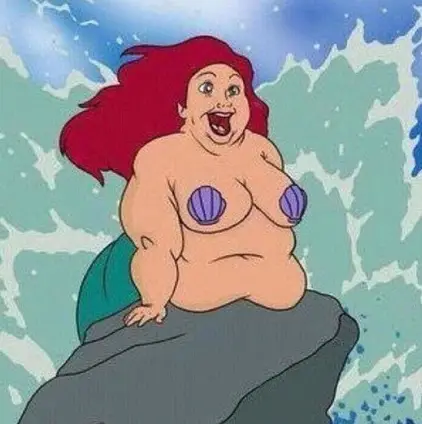Where do I start?
Well the most obvious challenge is being able to breathe underwater. I'm not familiar with the scientific theories, but I assume they must center around being able to extract oxygen from water like gills do.
How mermaids breathe
There is a stage of human embryo development that shows gill-like slits, so perhaps mermaids have evolved slightly differently?
However, considering most mermaids have a mammal-like appearance (they have breasts, for example), this would rule gills out.
Instead, it'd be more likely for them to have lungs adapted for deep-sea diving, meaning they'd need to keep popping up to the surface for, air a bit like whales do...

There are other interesting challenges that a mermaid would need to solve in order to survive in the deep below.
One hitch would be the ability to maintain body temperature in freezing cold water.
How do mermaids stay warm?
Again, a whale comparison could work here too...
Whales use their blubber (or fat) to keep insulated, as well as having a high metabolic rate. Species of whale that have blubber which is high in lipid concentration are better equipped for colder climes, so in reality mermaids would need to be quite chubby.

Life under the sea would also present challenges like sourcing food, energy, protection from predators etc...
These are all very important practicalities to consider - too many people these days commit to being a mermaid before understanding the full implications.
What do mermaids eat?
A quick Google search led me to a Yahoo Answers page that suggest they survive on algae and seaweed and are in fact vegetarian.
I'm no dietary expert, but I suspect that if mermaids have nutritional requirements that are anywhere near our own, that would be insufficient - especially considering all the swimming about and staying warm they'd need to do...
Instead, I feel it's possible that mermaids would feed on small fish, either hunting or scavenging.
It may even be that mermaids are cannibalistic: Preying on one another in order to find sustenance!
